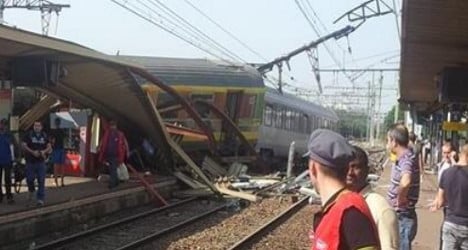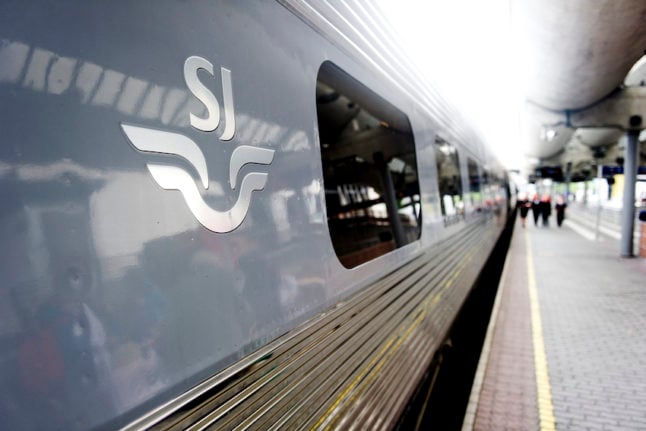The opening of criminal investigation into involuntary homicide and injury was announced on Wednesday by the prosecutor of Evry, Eric Lallement.
The crash on July 12th at the Bretigny-sur-Orge station, about 25 kilometres (15 miles) south of Paris left six people dead, two passengers and four people who were standing on the platform.
French rail operator SNCF blamed the accident – which saw the intercity train derail as it sped through the station – on a connecting bar that had come loose at a rail switchpoint.
Prosecutor Lallement said the idea someone had purposefully loosened the connecting bar is not one authorities are giving much weight to. The prosecutor said they working on the theory of "material failure" and will aim to get to the bottom of how the connecting bar came loose. Three judges will now be appointed to lead the investigation.
He also confirmed reports that thieves had stolen from two passengers involved in the crash.
Objects belonging to the passengers were found in Chatelet, central Paris, and CCTV images showed people leaving the station with suitcases they did not have when they arrived, the magistrate said.
The prosecutor also confirmed that rocks were thrown at five firefighters who had responded to the emergency and one emergency aid worker reported having his phone stolen.
In the days after the disaster SNCF carried out extensive checks of around 5,000 other rail switchpoints. The results of the checks were announced on Wednesday.
"The checks have not detected any situations that would threaten safety," Pierre Izard, the SNCF's general manager for infrastructure, told a press conference.
Izard said nearly 5,000 switchpoints had been checked since the accident.
The SNCF said its findings had been handed over to judicial and transport safety authorities, who are carrying out their own investigations into the accident.
SNCF chief Guillaume Pepy said it remained unclear how the connecting bar had come loose at the station.
"Every possibility is being considered," he said.
The accident, which also left dozens injured, raised concerns about the state of France's rail network, with some officials complaining that regional lines had suffered as funding focused on high-speed TGV lines.
President Francois Hollande said after the accident that France must do "much more" to maintain regional lines, vowing to make them a priority for investment.
Last week an explosive police document was published alleging that opportunistic thieves threw stones at police and rescue workers and stole possessions from accident victims in the aftermath of the derailment.
The contents of the document, which was revealed by Le Point magazine, said that individuals from the suburb "hampered the progress of rescue vehicles by throwing projectiles at them".
"Certain trouble-makers had succeeded in seizing personal possessions scattered on the ground or on the victims themselves," the document from the CRS (Compagnies Républicaines de Sécurité), a unit of the French National Police said.
Last week, however, authorities officially denied there were any thefts from passengers while police have stated publicly that no passengers have reported any crime.



 Please whitelist us to continue reading.
Please whitelist us to continue reading.
Member comments